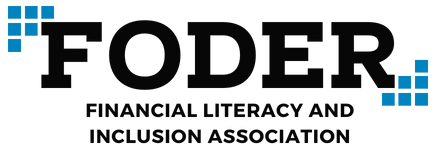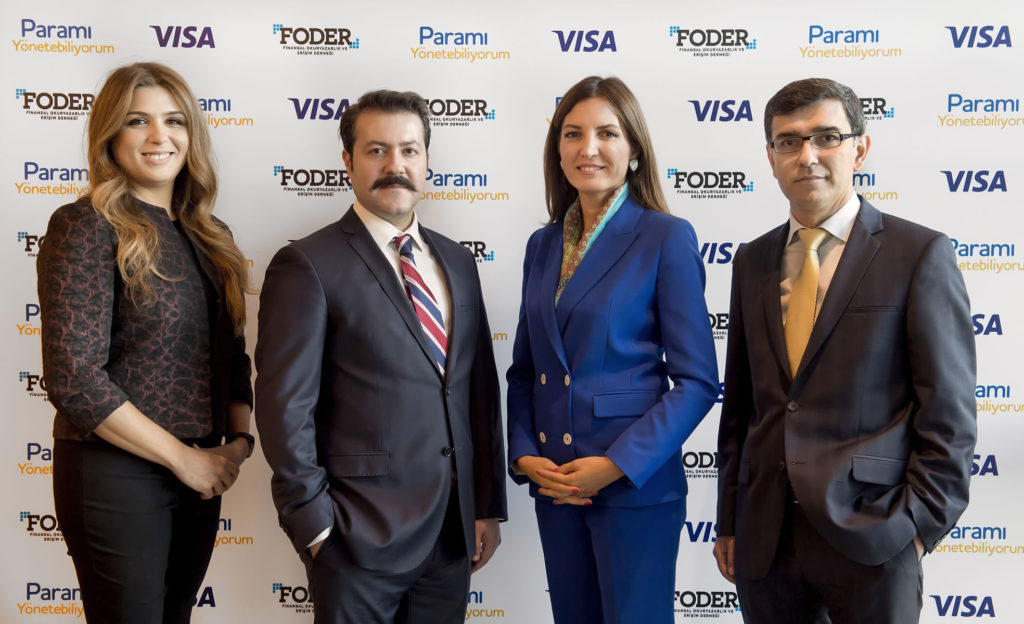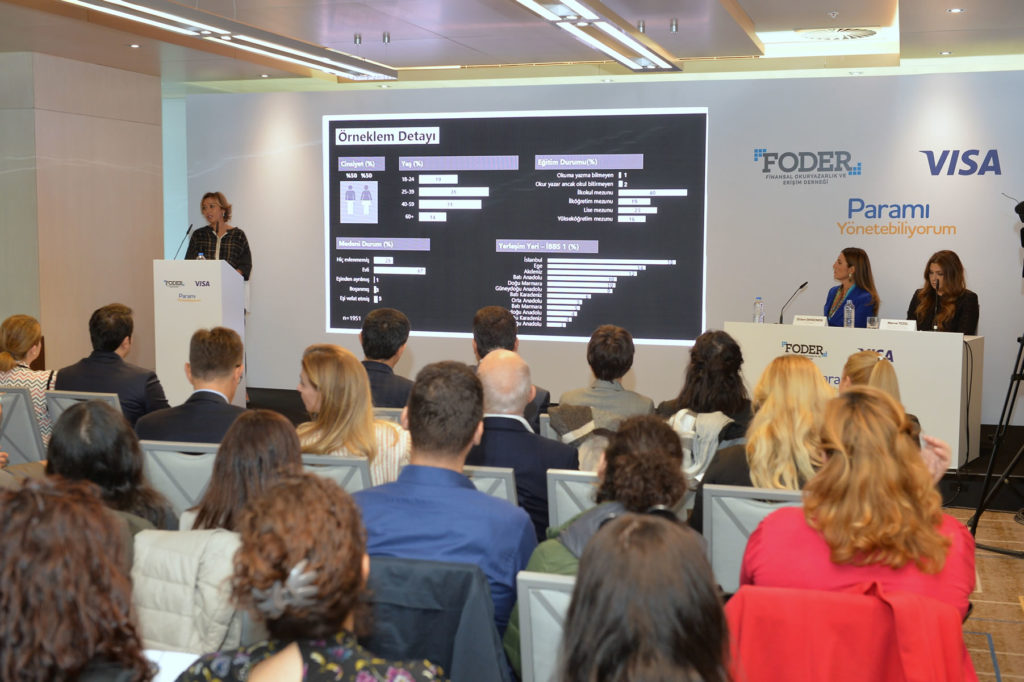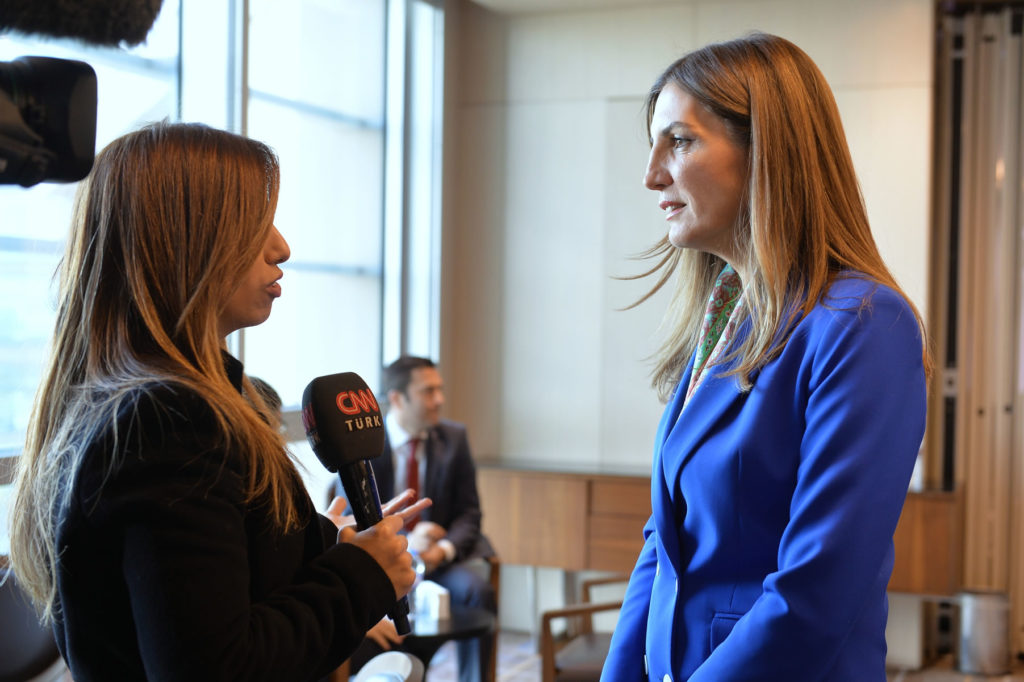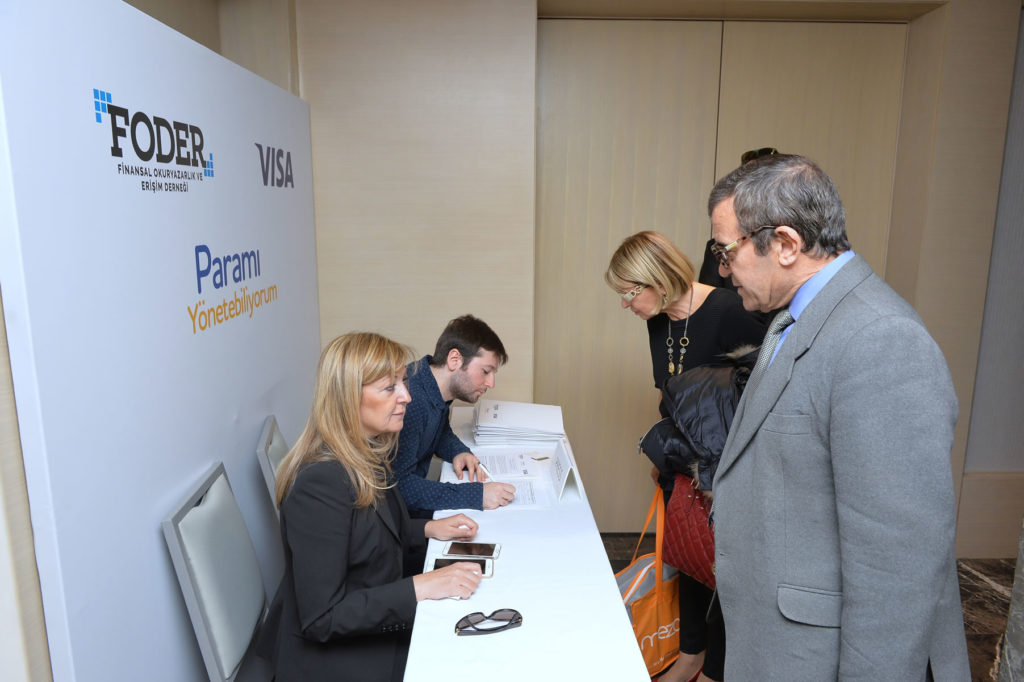FODER – VISA Turkey 1st Turkey Financial Literacy Survey
The rate of individuals who have the minimum financial information in Turkey is 70 percent according to the survey’s results. The level of financial knowledge is higher in individuals taking part in working life who have higher income and education levels.
2 out of 5 people saved money in the last 1 year
According to the data obtained from the survey; it is observed that two out of five people saved money in the last 1 year, the main reasons behind it, which led them to make savings are “uncertainty about the future” and “anxiety”. Half of those who saved money (49%) stated that they saved money as a precaution against unexpected situations such as health problems, natural disasters, and becoming unemployed suddenly.
According to the findings of survey, the rate of participation in making daily financial decisions for household is 74% for women and 85% for men. Only 43% of young people have a first call in making daily financial decisions for household.
Savings and pension products stand out as explicit elements in recognition of financial products. The level of recognition of this product category is 85%.
The fact that the individuals in Turkey are taking care of making decision in a disciplined way on paying their loans back is the other remarkable point of the survey. 83% of the society on this issue stated that they paid their debts on time.
5 Social Profiles According to Financial Attitudes
According to the data revealed by the survey, in accordance to the financial information, behaviors and attitudes, the society in Turkey can be divided into five main groups: Financially Wise Ones (22%), Moderate Parents (24%), Economizing Conservatives (20%), Unplanned Dreamers (19%) and Careless Young People (15%)
Financially Wise Ones, who are more knowledgeable and ambitious in financial matters than others, is the group having the highest level of financial literacy. Financially Wise Ones, who constitute 22% of the society, who are middle aged, who are mostly employers and have higher household income compared to other segments, are managing their money wisely and effectively. They are saving their money and spending consciously. These ones, who wish to expand what they have, say that they are ready to take risks for realizing this. This group sets financial targets for itself and evaluates its savings in different areas to achieve these goals. “Financially Wise Ones” generally make their own budgets and they never delay their payments.
“Moderate Parents”, who constitute 24% of the society, representing the middle-upper age group stretch their arm no further than their sleeve will reach. They are trying to make a long-term plan for the future of their families and their retirement period. They are afraid to borrow money, they never delay their payments. For this group, the livelihood of the household is so significant, they do not risk the money with the desire for high income.
“Economizing Conservatives” group has a tendency to manage money more economically. This group, which constitutes 20% of the society, tries to think long-term and to save money for their children, but their financial situation is challenging for them to do so. They can spend money only on basic needs, but they don’t have the flexibility to make unnecessary spending. They do not prefer to invest in interest-yielding financial instruments.
“Unplanned Dreamers” and “Careless Young People” are prominent as groups that are constituted by young people between 18-24. As having limited income and being single with no children “Unplanned Dreamers” constitute 19% of the society. They dream of a wealthy future and are ready to take risks for it. However, they cannot be disciplined and planned about managing their money. This group, which is avoiding setting long-term goals, also states that they do not have any motivation for saving money.
As the group constitutes 15% of the society “Careless Young People” have the lowest level of knowledge in financial matters. This group does not have regular income and they “seize the day”. With making no budgets, they never save money. Moreover, they state that they will not save money even if they have the adequate income to do so.
“We want to reach more financially aware Turkey”

FODER’s Chair Özlem Denizmen stated on that: “Ensuring a kind of Turkey, which have a consciousness on making savings, which wants a better future and plans to realize it, is our common goal. As FODER, we dreamed of increasing the financial literacy level of Turkey to take its rightful place; of creating positive changes in the financial behavior of individuals; of ensuring people to make savings individually and nationally; and thus of creating a better future. Because, simply, individuals need to start to live with a financial literacy awareness to manage daily financial needs and plan their future.
Then, they will be able to identify their financial needs and to build their future. In our survey we found that 2 out of every 5 people (42%) saved money. Our expectation about making savings within the framework of financial literacy is that to ensure the individuals to act within a long-term plan. This survey lights the way of us, of our members and of people who are dedicated to financial literacy.”
“To improve financial literacy is like a marathon race”
Visa Turkey General Manager and FODER Board Member Merve Tezel evaluates the results of survey and stated that: “Survey shows that on average in Turkey, the individuals can answer 7 out of 10 questions correctly on basic financial information. The ratio of individuals having minimum financial knowledge in our country is 70%. Behind this, there is a great impact of the studies made both in the private sector and the public sector in order to improve financial literacy. As Visa, within the scope of our social responsibility project “I can manage my money” that we have held with the banks and our project partners for 8 years, we have been conducting trainings in 81 cities on how to make budgets, on understanding financial concepts and on gaining the skill to use the financial products that can be faced in life effectively. We are pleased to see the reflection of our work in the society and that there is considerable amount of awareness and knowledge level about financial literacy. Now we need to forward this awareness to the right financial behavior. Ensuring a financial literacy fully is like a marathon race. Our goal is to make our scale bigger and reach more individuals. We will continue to work with this awareness.”
